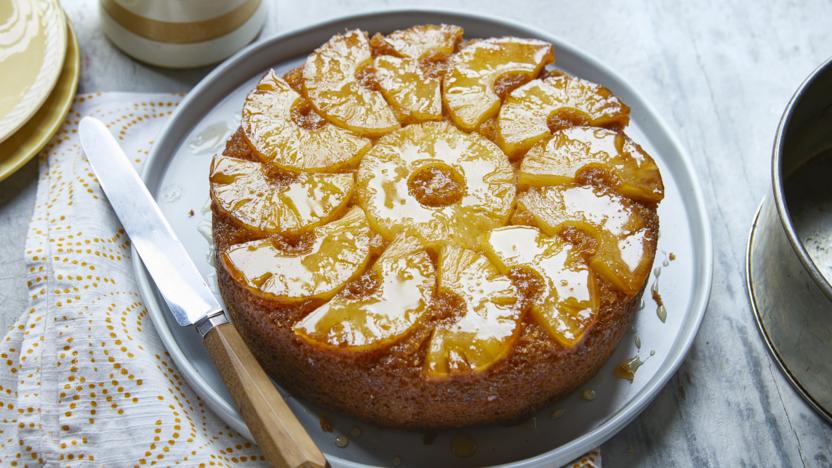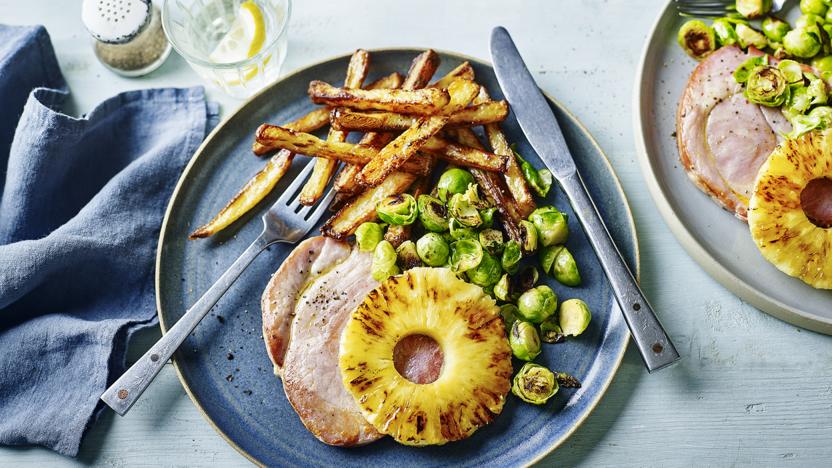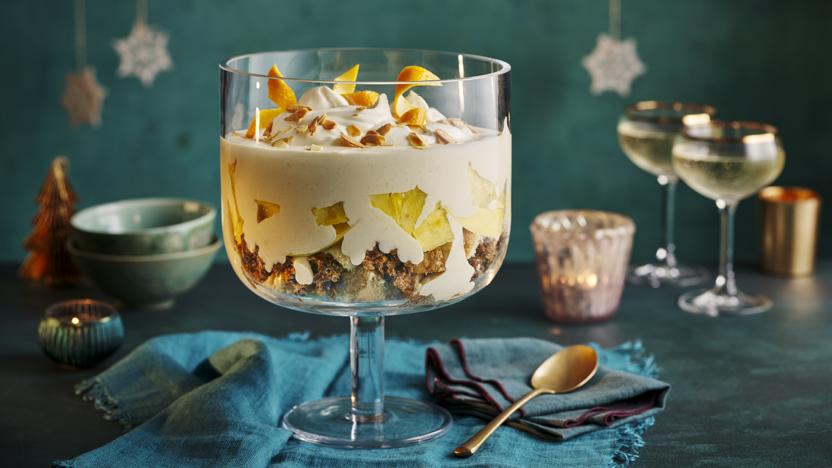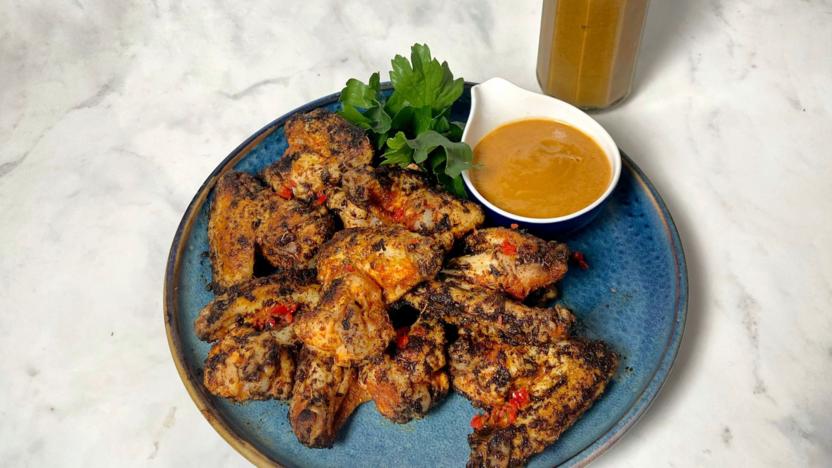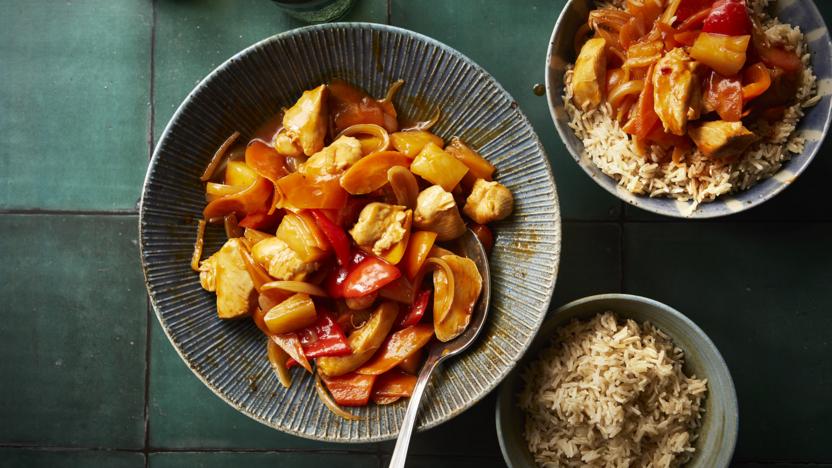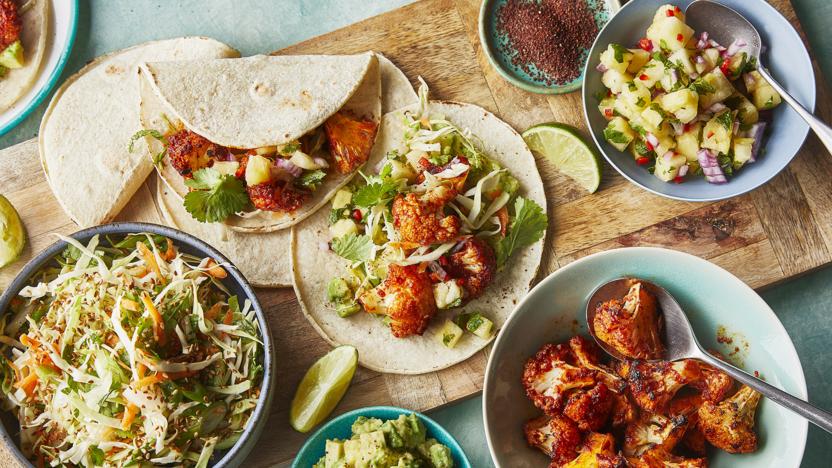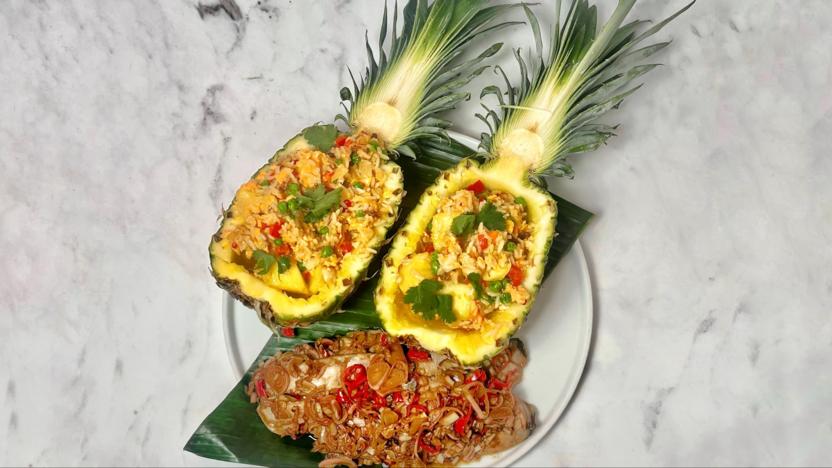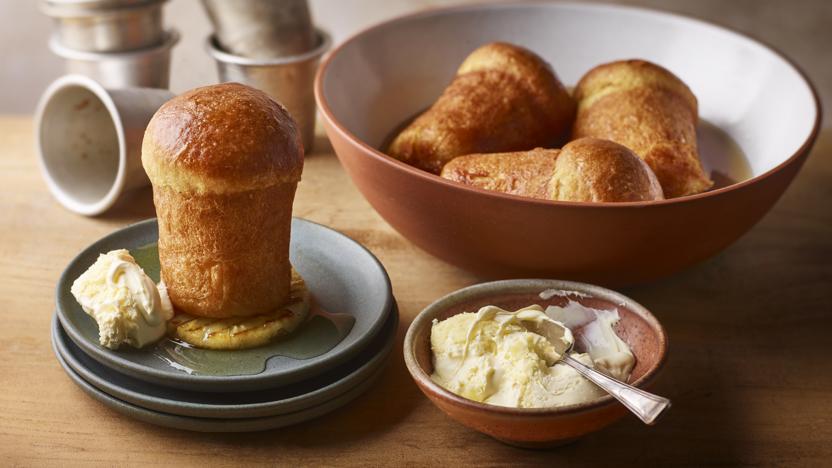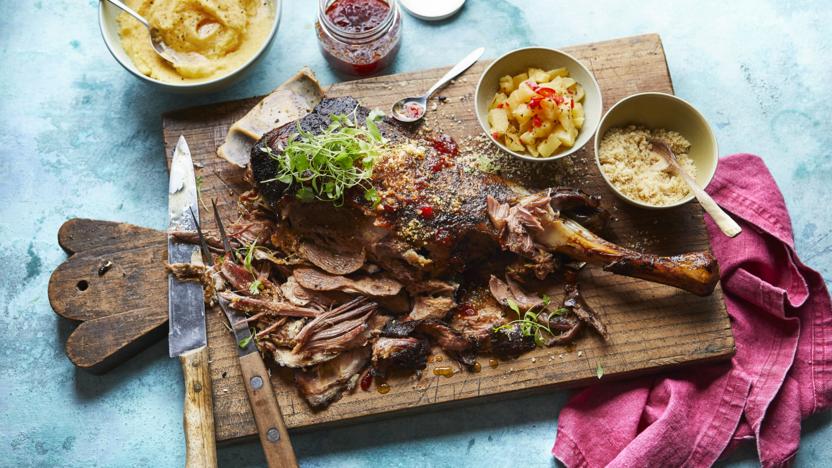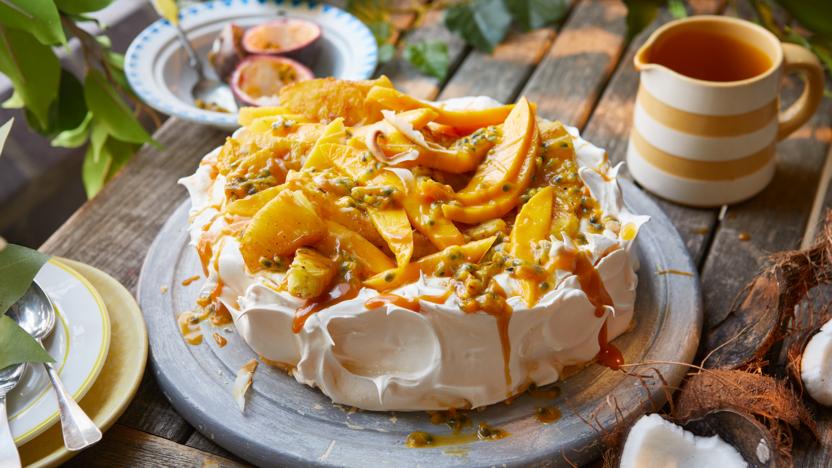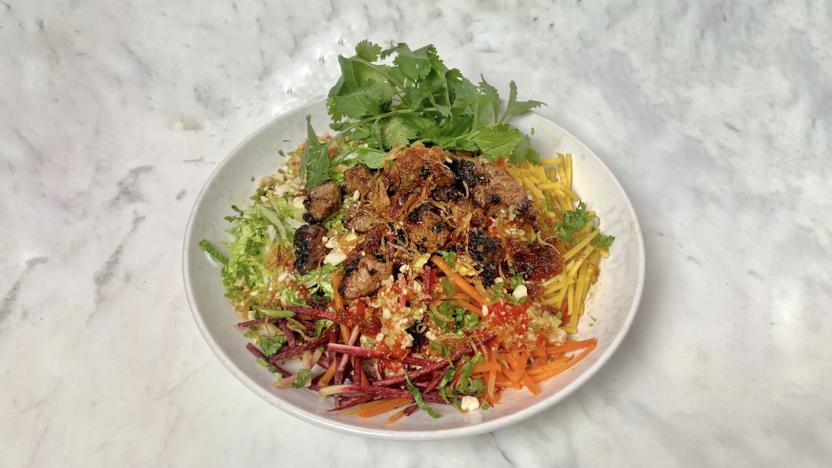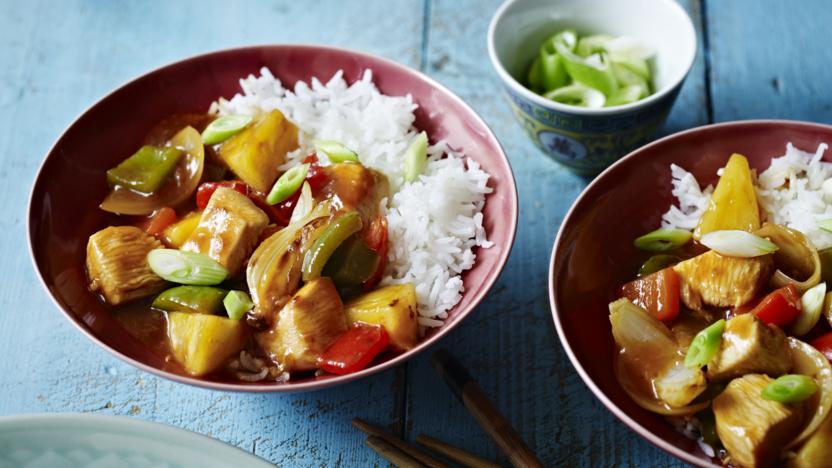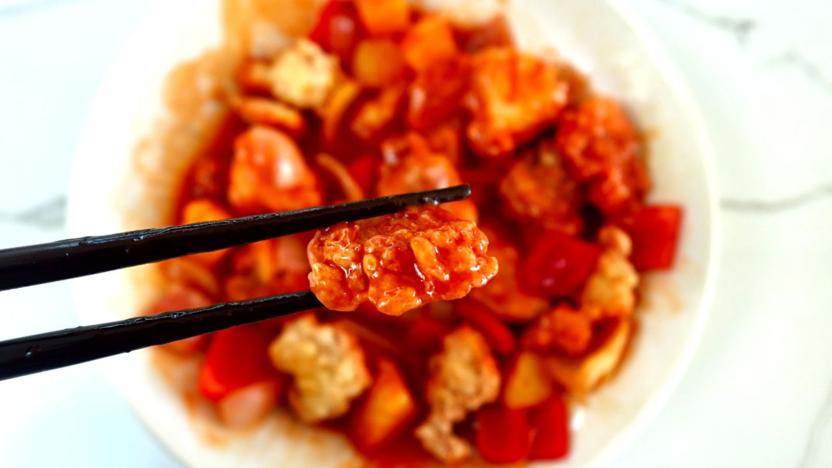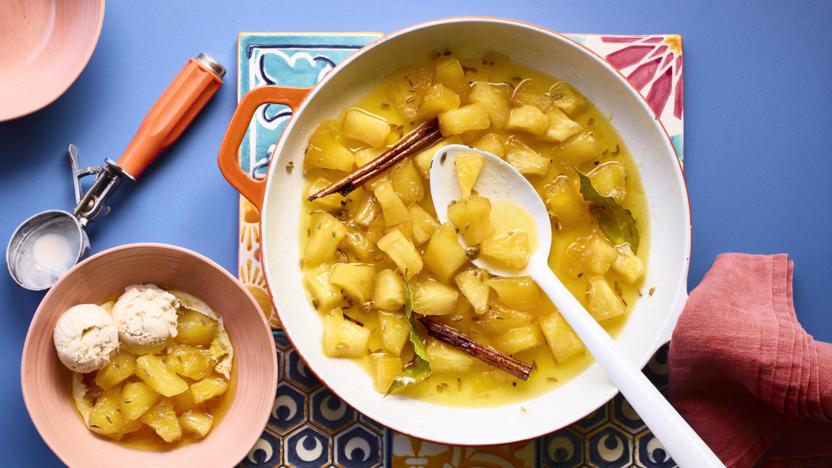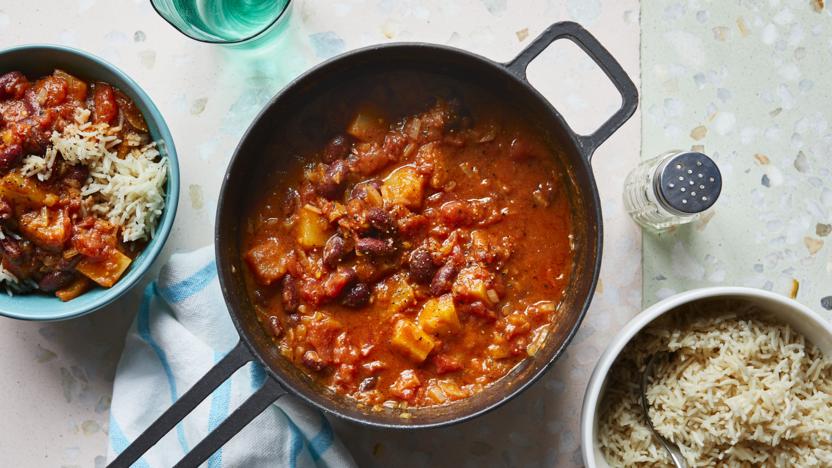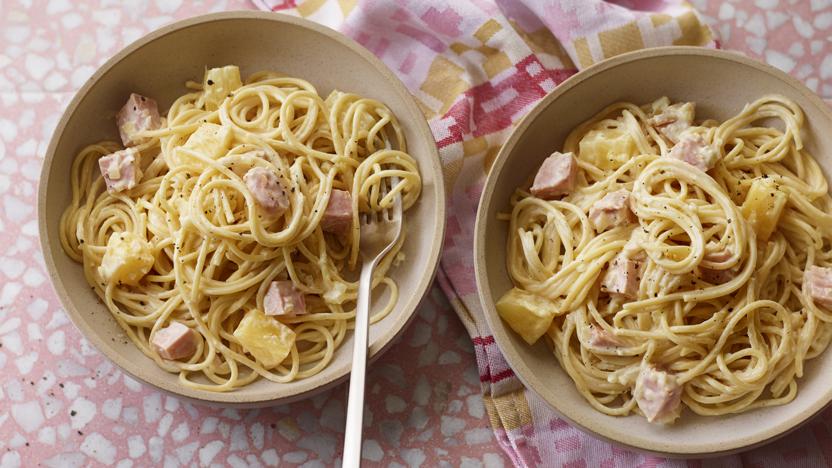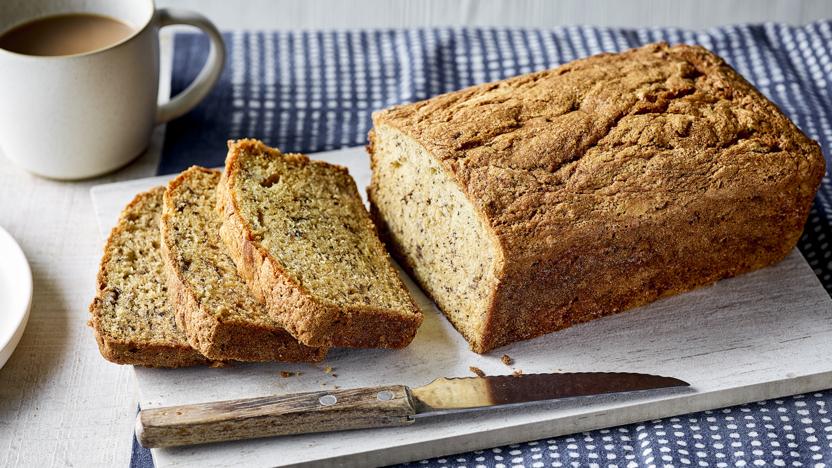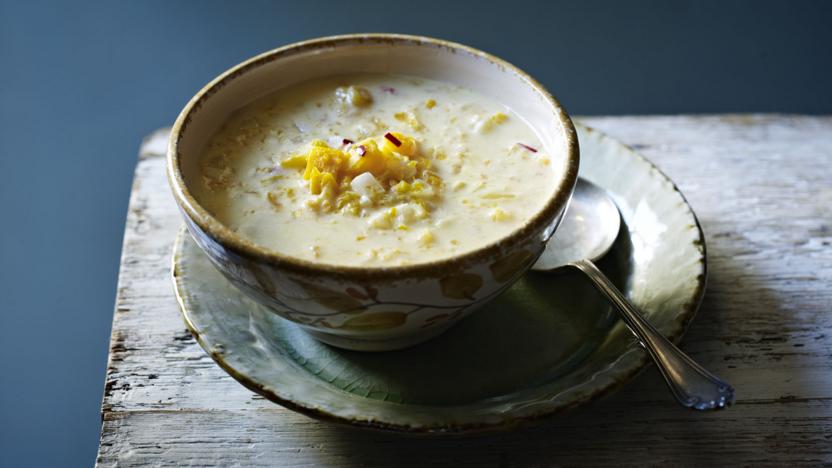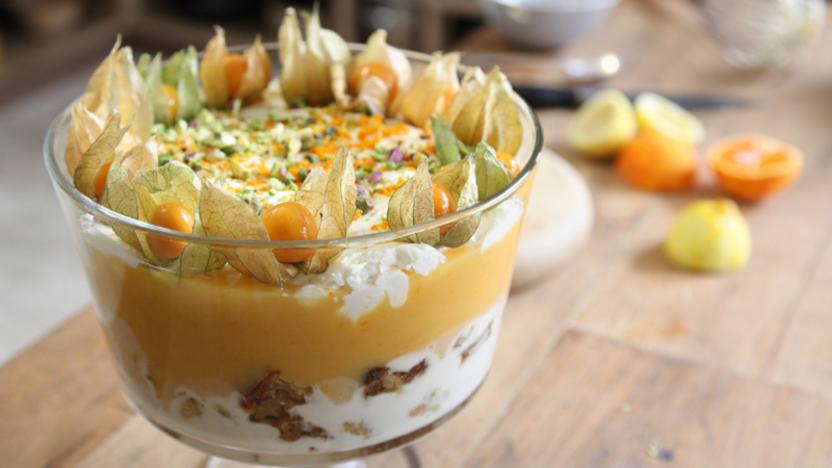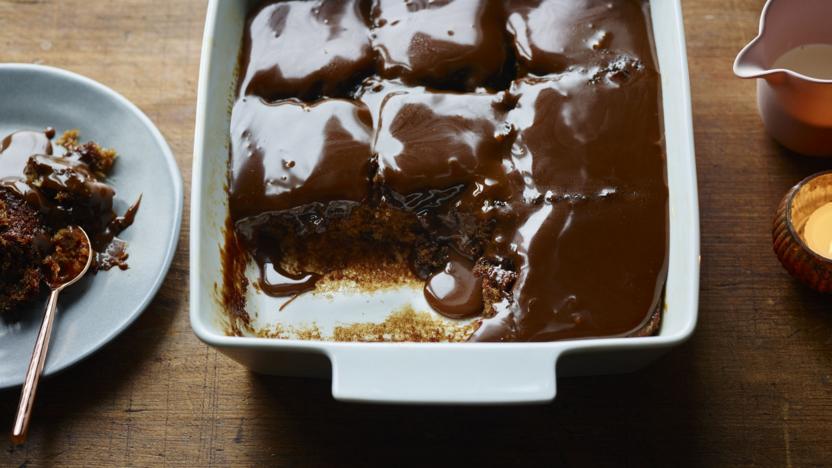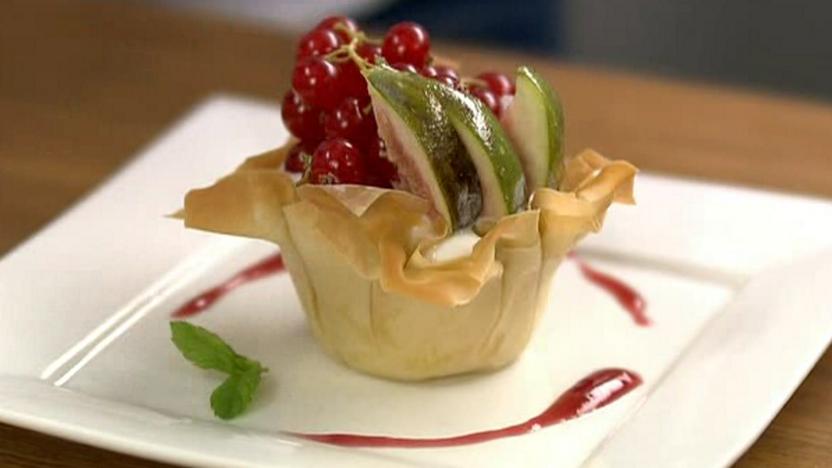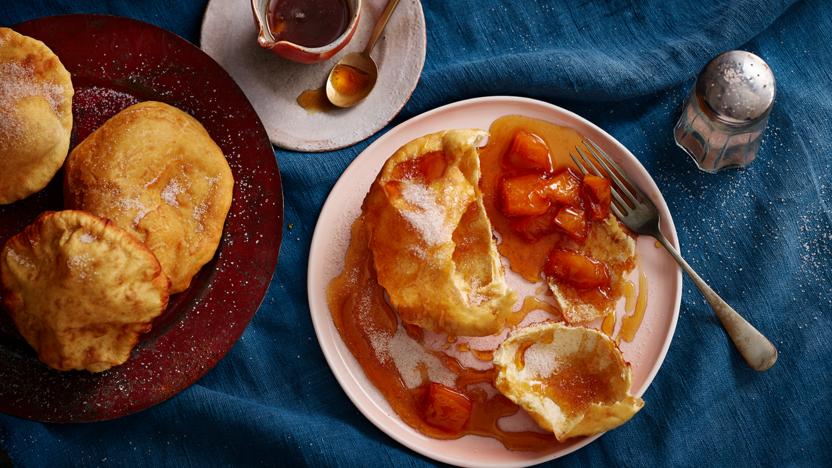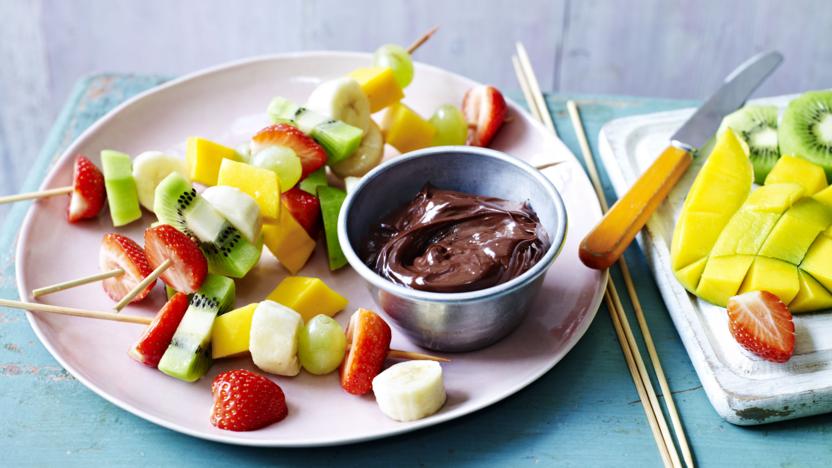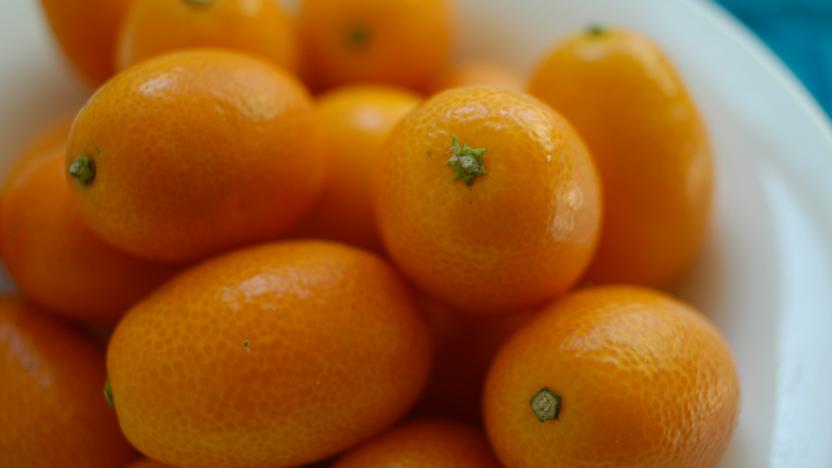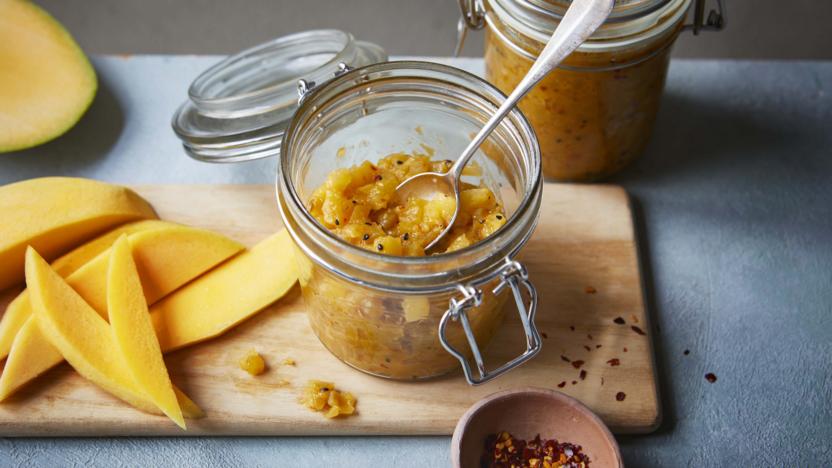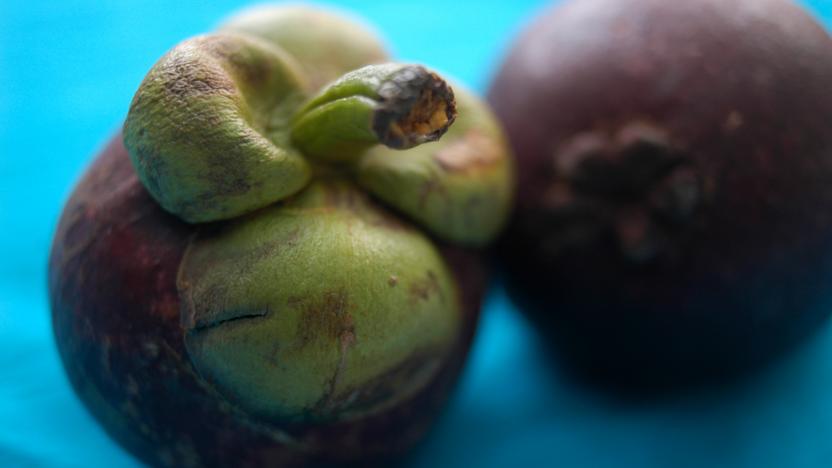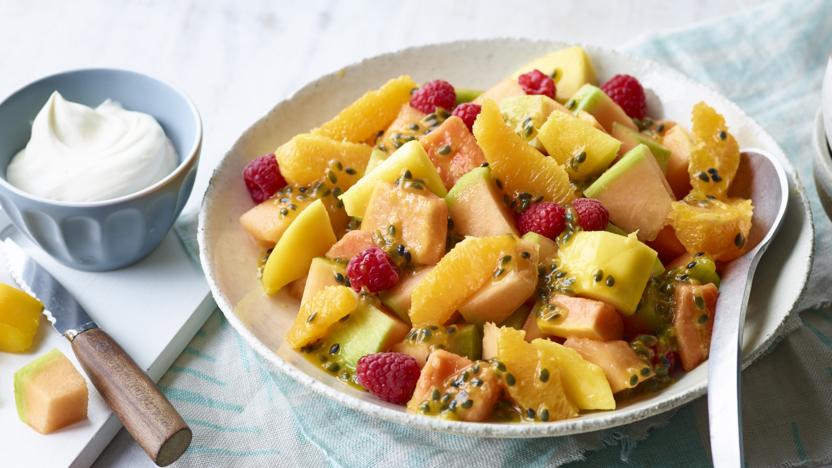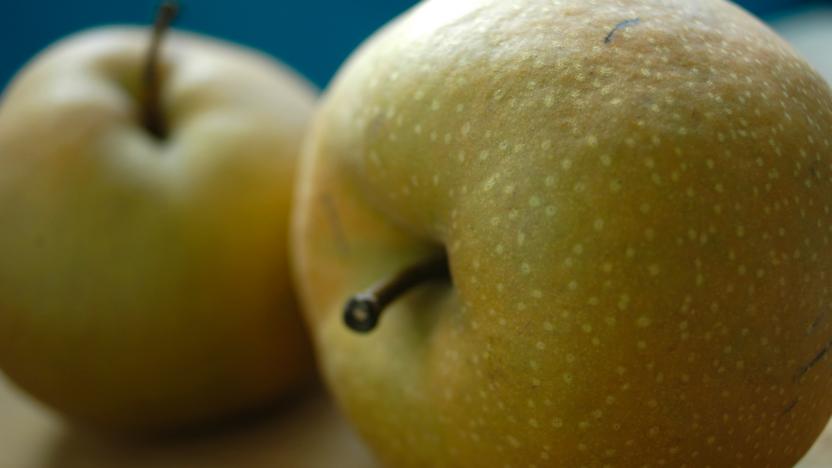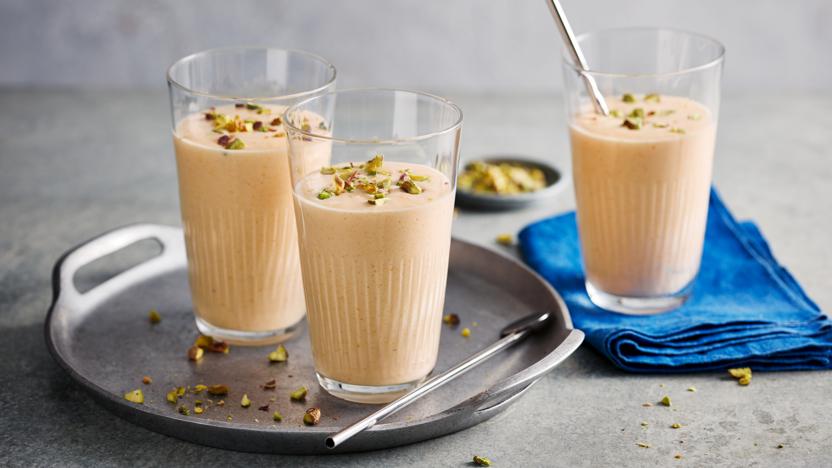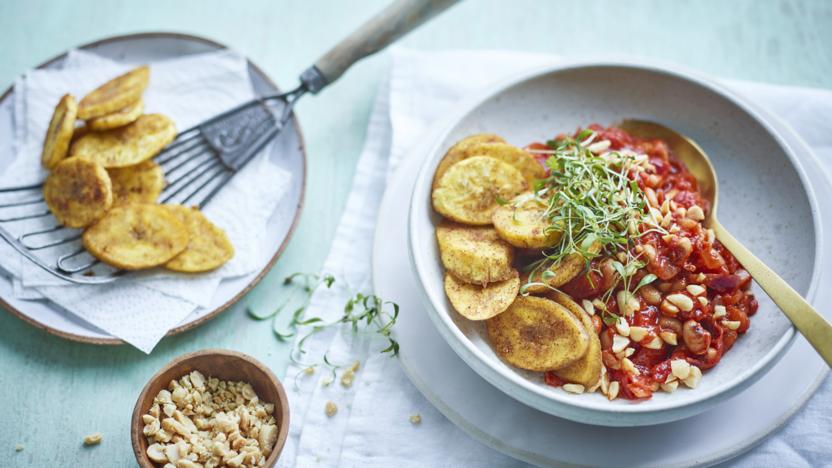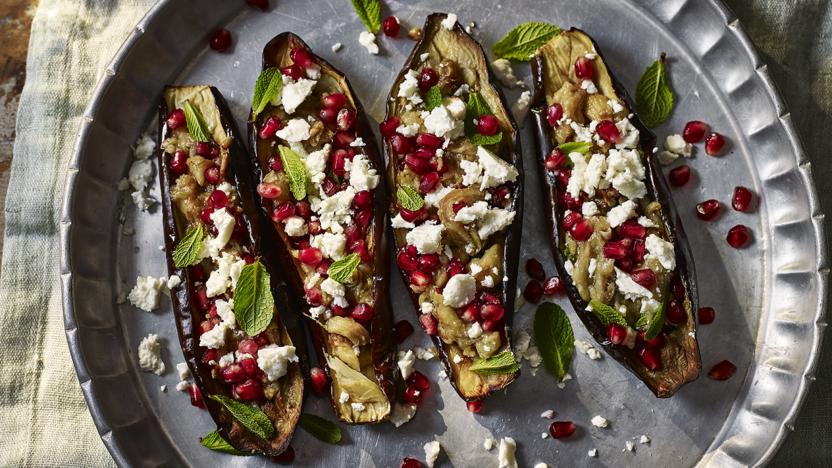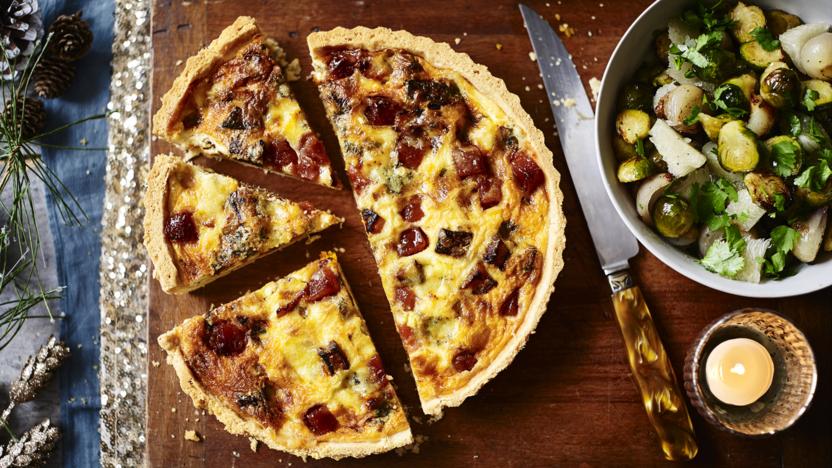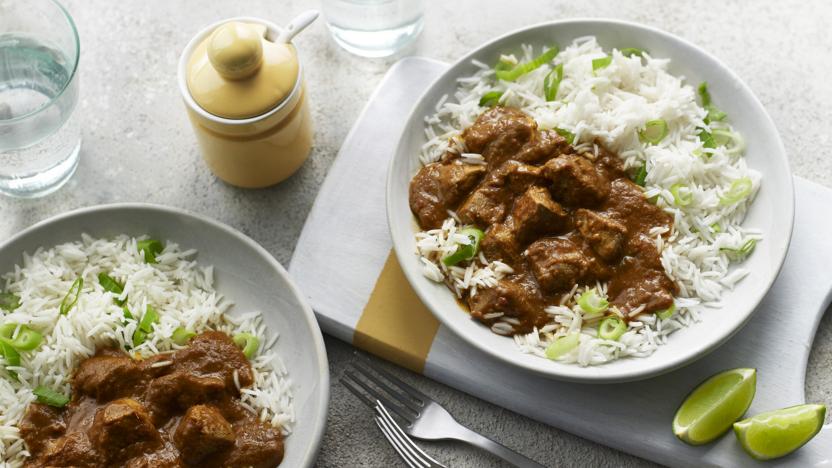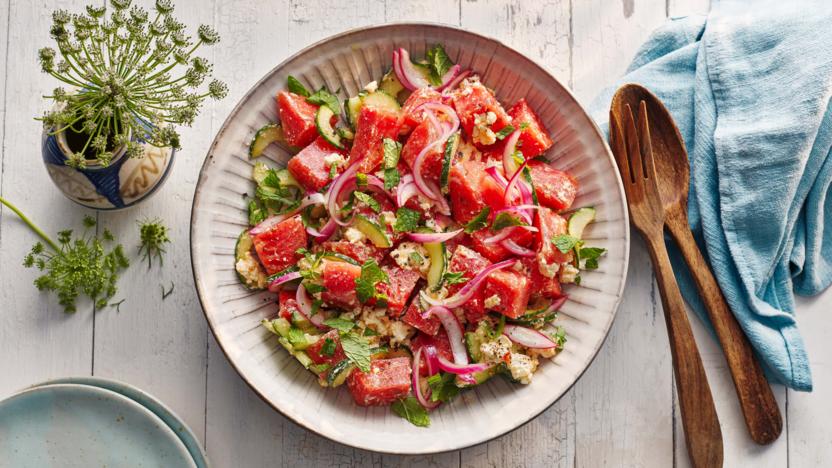Pineapple recipes
Pineapple is a spiky-skinned, tropical, compound fruit with aromatic, sweet-sour juicy yellow flesh and a fibrous core. Miniature varieties have a tender, edible core.
Pineapple upside down cake is a retro favourite that's stood the test of time for good reason. Moist, tangy and easy to make, it's a great make-ahead dessert served with ice cream or custard.
More pineapple recipes
Buyer's guide
Pineapples cannot ripen further once picked. To test for ripeness, pull out a leaf and sniff. If it comes away from the fruit easily, the pineapple is ripe: if the leaf smells of fermentation, it’s past its best.
Storage
Refrigerate cut pineapple, but cover tightly as it has a pervasive odour.
Preparation
Super Sweet varieties of pineapple are mainly sold in the UK. These rarely need extra sugar to balance their acidity. Other varieties, such as Smooth Cayenne, will need sweetening. One medium pineapple serves four people.
To minimise waste, cut off the skin, then cut v-shaped diagonal ‘trenches’ from all around the pineapple to remove its ‘eyes’.
Pineapple flesh is eaten raw in salsas, desserts and sweet or savoury salads. Pineapple juice or purée is also good in exotic fruit drinks such as smoothies, especially those made with coconut water. It is also excellent cooked, especially griddled, fried or baked in cakes. Rum, cherry or orange liqueurs taste good with pineapple, as do citrus fruit and spices, including fresh chilli.
Raw pineapple juice will prevent gelatine from setting as it contains bromelain, an enzyme that breaks down protein. If you want to make pineapple jelly, you must cook the pineapple first.
